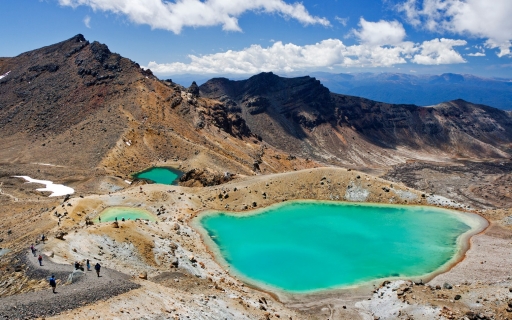Te Aroha Weather and Climate: A Comprehensive Guide
Temperatures in Te Aroha experience a moderate degree of variance through the seasons.
Days can be warm, while the cooler months tend
to be mild.
It is also known for its large amounts of rainfall.
Now, let’s explore all the climate details to give you a full picture.
Average maximum day and minimum night temperature
The weather in Te Aroha changes moderately throughout the year, offering enough variation to appreciate each season. Typically, average maximum daytime temperatures range from a comfortable 24°C in February to a moderate 15°C in the coolest month, July.
Nights are cooler, with lows often dropping to around 7°C during the colder months. Check out our detailed temperature page for more information.Temperature ranges by month
Precipitation and rainy days
Te Aroha has a notably wet climate with abundant precipitation, recording 1196 mm of rainfall per year. Te Aroha offers a pleasant mix of wetter and slightly drier months. The difference in precipitation between July (123 mm) and January (73 mm) is not too significant, making the climate enjoyable for visitors and residents alike.The mean monthly precipitation over the year, including rain, hail and snow
Sunshine over the year
For those who appreciate different seasons, Te Aroha serves as an ideal destination. Expect longer, more sun-filled days in January with an average of 8.7 hours of sunshine daily, and embrace the darker days in June, offering only 4.6 hours of daily sunlight. Visit our detailed sunshine hours page for more information.Monthly hours of sunshine
Daily hours of sunshine
Average humidity
The relative humidity is high throughout the year in Te Aroha.
The city experiences its highest humidity in June, reaching 86%. In November, the humidity drops to its lowest level at 73%. What does this mean? Read our detailed page on humidity levels for further details.
Relative humidity over the year
partly cloudy and no rain almost clear and no rain almost clear and no rainForecast for Te Aroha
Select a Month of Interest
Check the conditions for any month of the year.
The best time of year to visit Te Aroha in New Zealand
During the months of January, February, March, April and December you are most likely to experience good weather with pleasant average temperatures that fall between 20°C and 26°C.Other facts from our historical weather data:
February has an average maximum temperature of 24°C and is the warmest month of the year.
The coldest month is July with an average maximum temperature of 15°C.
July tops the wettest month list with 123 mm of rainfall.
January is the driest month with 73 mm of precipitation.
January is the sunniest month with an average of 262 hours of sunshine.
No idea where to travel to this year? We have a tool that recommends destinations based on your ideal conditions. Find out where to go with our weather planner.




